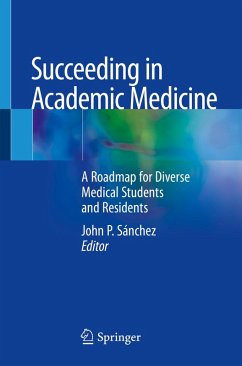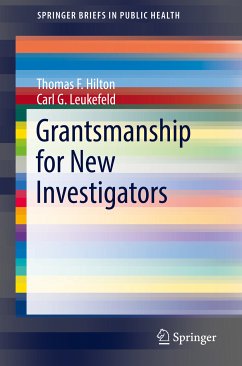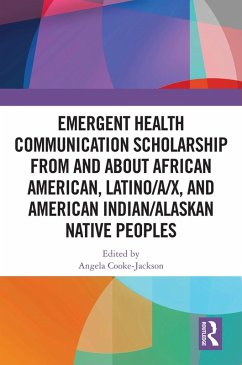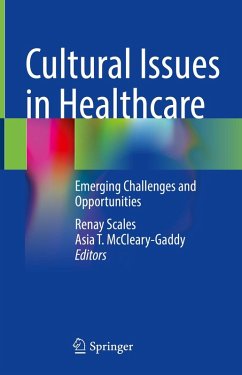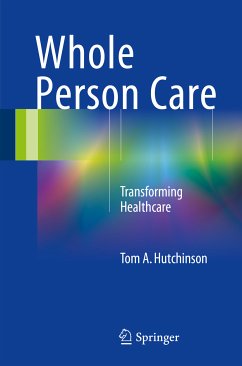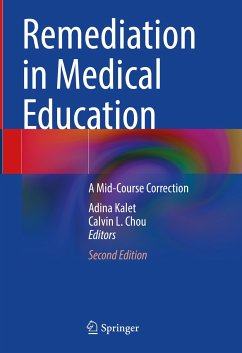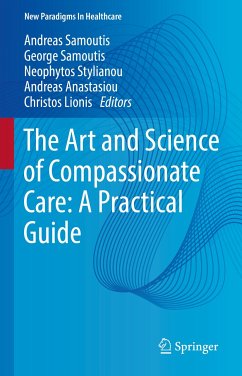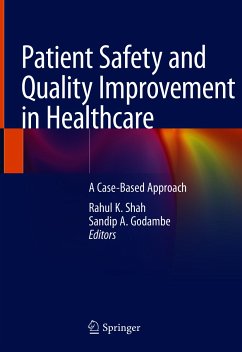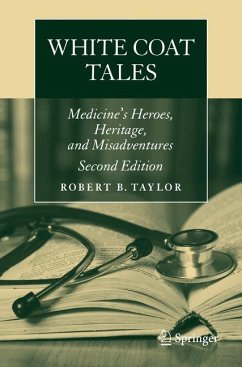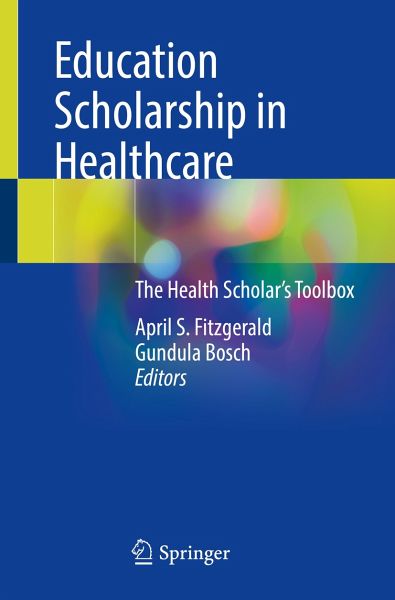
Education Scholarship in Healthcare (eBook, PDF)
The Health Scholar's Toolbox
Redaktion: Fitzgerald, April S.; Bosch, Gundula
Versandkostenfrei!
Sofort per Download lieferbar
72,95 €
inkl. MwSt.
Weitere Ausgaben:

PAYBACK Punkte
36 °P sammeln!
Academic medical centers continue to require evidence of scholarly activity for their faculty to maintain their appointment and to advance in promotion/rank. For some, training to know how to obtain evidence of scholarship was obtained through fellowship where information was passed from mentor to mentee in an apprenticeship fashion without a formalized text to follow to obtain the information. In fellowship, information might flow through word-of-mouth or articles handed down out to a mentee. Others in fellowship develop skills by taking classes as part of an additional master's degree progra...
Academic medical centers continue to require evidence of scholarly activity for their faculty to maintain their appointment and to advance in promotion/rank. For some, training to know how to obtain evidence of scholarship was obtained through fellowship where information was passed from mentor to mentee in an apprenticeship fashion without a formalized text to follow to obtain the information. In fellowship, information might flow through word-of-mouth or articles handed down out to a mentee. Others in fellowship develop skills by taking classes as part of an additional master's degree program such as a Master of Public Health.
For health professionals who enter an academic institution without having gone through a fellowship program, they are still expected to perform scholarly activity but don't have the benefit of having done the apprenticeship to learn the skills, so unless they decide to find a course, obtain a master's degree, or find a fellowship, they have no way to gain the necessary skills and are at risk of losing their appointment and have no hope of progressing in promotion.
This text provides a comprehensive toolbox for the academic who needs these skills to survive. It serves as a valuable resource for health professionals - physicians, nurses, pharmacists, physical therapists, and allied professionals - as well as scientists, and students, with the steps necessary to take their educational endeavors from idea to implementation through dissemination. Beginning with the concept of "What is Scholarship", the authors walk the reader through the concepts of how to find your niche, look through the literature to check for a gap, design a question, consider evaluation and outcomes, be aware of ethical considerations, plan a project, look for support, find mentorship, prepare an abstract, present a poster, disseminate a project, and lead a team. All chapters are written by experts in the subject matter.
For health professionals who enter an academic institution without having gone through a fellowship program, they are still expected to perform scholarly activity but don't have the benefit of having done the apprenticeship to learn the skills, so unless they decide to find a course, obtain a master's degree, or find a fellowship, they have no way to gain the necessary skills and are at risk of losing their appointment and have no hope of progressing in promotion.
This text provides a comprehensive toolbox for the academic who needs these skills to survive. It serves as a valuable resource for health professionals - physicians, nurses, pharmacists, physical therapists, and allied professionals - as well as scientists, and students, with the steps necessary to take their educational endeavors from idea to implementation through dissemination. Beginning with the concept of "What is Scholarship", the authors walk the reader through the concepts of how to find your niche, look through the literature to check for a gap, design a question, consider evaluation and outcomes, be aware of ethical considerations, plan a project, look for support, find mentorship, prepare an abstract, present a poster, disseminate a project, and lead a team. All chapters are written by experts in the subject matter.
Dieser Download kann aus rechtlichen Gründen nur mit Rechnungsadresse in A, B, BG, CY, CZ, D, DK, EW, E, FIN, F, GR, HR, H, IRL, I, LT, L, LR, M, NL, PL, P, R, S, SLO, SK ausgeliefert werden.



